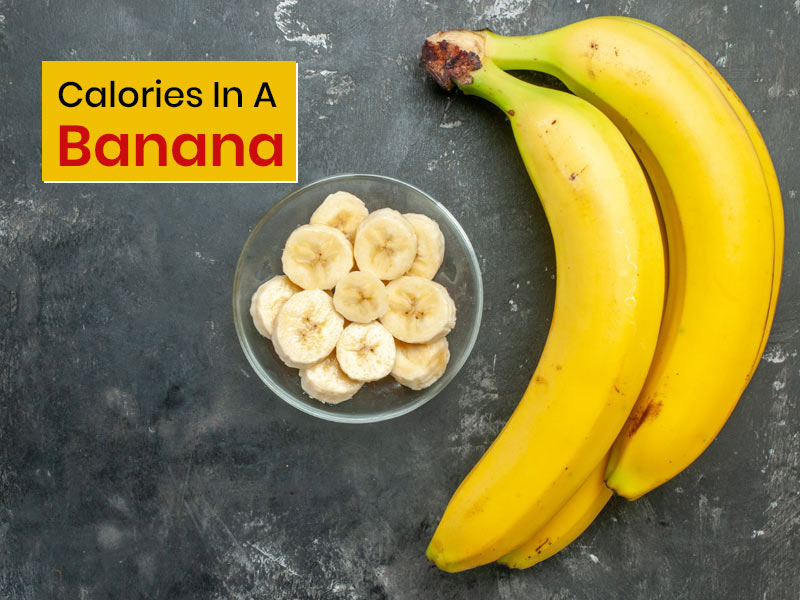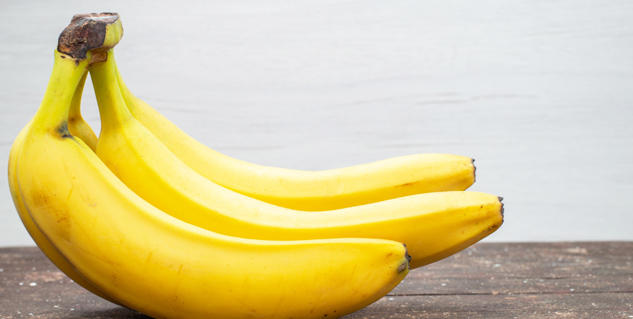
When it comes to weight loss, many develop beef with bananas. People avoid this fruit, citing calories and its role in weight gain (sic). On the other hand, many trying to gain a few pounds eat this readily available fruit healthily. This further reinstates the (mis)belief that this innocent fruit is responsible for that flab around your abs. But is it true? Do bananas cause weight gain? Or, can they help with weight loss? To get answers to these questions, Onlymyhealth spoke to Rakshita Mehra, who is a nutritionist and the founder of ‘Nutrishala’.
Table of Content:-
Number Of Calories In A Banana
While losing weight, people pay close attention to calories. But what is it and why do people focus so much on it? A calorie is simply a unit of energy. Scientifically, it is the energy needed to raise the temperature of 1kg of water by 1°C. Every food and beverage has a set number of calories. Similarly, you burn calories when you work out. For losing weight, it is generally advised to go calorie deficit, which is you must burn more calories than you consume.
Now coming to bananas, the normal size of this fruit contains 105 kCal. In comparison, to maintain their weight, a man must consume 2,500 kCal in a day, and a woman 2,000.
Also read: Banana Is Fattening, Gluten Is Bad: Myths About Foods And Weight Loss Quashed
Nutritional Content Of A Banana

(Photo Credit: Freepik)
A banana is a high-fiber fruit, which helps with bowel movement, and keeps you full. It is also a potassium-rich fruit, which helps with fluid balance in the body. It contains other nutrients too, according to Rakshita, such as:
- Carbs
- Protein
- Fat
- Magnesium
- Phosphorus
- Calcium
- Vitamin C
- Iron
- Folate
Also read: Do You Know Green Bananas Can Aid Weight Loss? Read Other Health Benefits
Does Banana Help With Weight Loss?
There is no single food in the world that can singly help with weight loss, said Rakshita. It has no connection with weight loss. However, one aspect that can help is that this fruit contains a lot of fiber, which induces a feeling of satiety. As you feel full, you tend to eat less, saving you from some calories. Also, it doesn’t contain too much fat, which is another conducive aspect for weight loss.
Rakshita recommends having a lot of different seasonal fruits in a day for optimal nutrition. You can eat one banana a day but it is better to rotate to get benefits of other fruits as well.
Any Downsides Of Eating Banana?
Banana is a nutritious fruit and is devoid of any downsides as such. Many cite its sugary taste as a sign of it being fattening. But a banana tastes sugary only if it is ripe. An unripe banana has a lower glycemic index than a ripe one, explained Rakshita. Hence, if you are too conscious about your weight, pick a slightly unripe banana or a smaller fruit if it is ripe. Also, diabetics should consume it in limited quantity or avoid it altogether. Also, it has a high potassium content. Hence, those who already have a high potassium content in their bodies, have kidney issues, and are diabetic can avoid it completely.
(With inputs from Rakshita Mehra, who is a nutritionist and the founder of ‘Nutrishala’)
Photo Credit: Freepik
Also watch this video
How we keep this article up to date:
We work with experts and keep a close eye on the latest in health and wellness. Whenever there is a new research or helpful information, we update our articles with accurate and useful advice.
Current Version